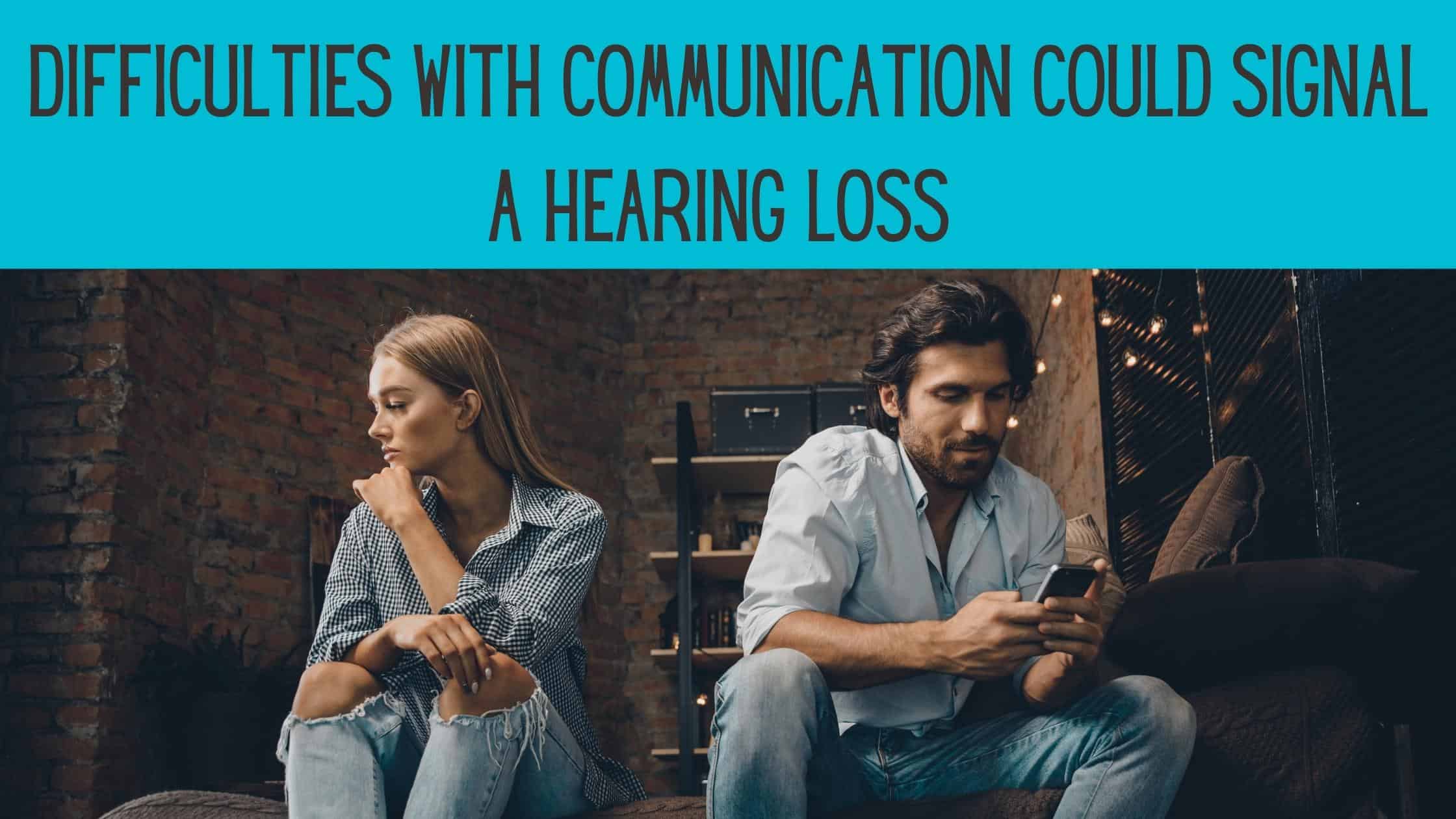
Hearing loss is one of the most common chronic medical conditions that people navigate today. Nearly 48 million people experience impaired hearing which has multifaceted effects if left untreated. Though hearing loss is a pervasive health issue, it tends to be underdiagnosed. Part of this is because hearing loss typically happens gradually, so it can remain unnoticed for quite some time.
Additionally, some of the most common misconceptions about hearing loss also contribute to inaction. This includes that it only impacts older adults, it is curable, and is not serious enough to have one’s hearing checked. Delaying treatment can worsen the impairment and also overall health and wellness. Being aware of the signs of hearing loss is an important way to intervene if you notice changes in your hearing health. One major sign of hearing loss is experiencing difficulties with communication.
Signs of Hearing Loss
Hearing loss reduces a person’s capacity to absorb and process incoming sound which produces a range of symptoms that impact communication. This includes the following:
- Tinnitus: a buzzing, ringing, or clicking like noise in one or both ears
- Sounds are muffled or slurred making it difficult to hear individual words clearly
- Asking others to repeat themselves, speak louder, and/or slower
- Difficulty hearing in environments with background noise and needing to move to a quieter setting
- Increasing the volume on electronic devices (TV, phone, speaker, etc.)
- Lip reading to distinguish words
These symptoms can be experienced mildly to profoundly, disrupting daily activities and the ability to navigate conversations. This can take a significant toll on all aspects of life in a variety of ways.
Impact of Hearing Loss on Communication
Experiencing hearing loss symptoms makes it challenging to manage daily life with ease. Significant ways people are impacted by hearing loss includes:
- Strained Communication: symptoms really impact one’s capacity to engage in a conversation. People with untreated hearing loss often exert extra energy and effort in an attempt to hear clearly – lip-reading, asking for clarification, paying attention to nonverbal cues, etc. Not only can this be exhausting and lead to fatigue but it can also make others feel like you seem distracted and are not paying attention. This can contribute to miscommunication, stress, and an unpleasant interaction.
- Social Withdrawal: in an effort to experience less strain, people with untreated hearing loss may keep conversations short or avoid them altogether. Avoiding social activities and retreating from social life involves spending less time with others. This can strain relationships with family and friends, creating distance and tension. Social withdrawal contributes to loneliness and stress which can lead to depression and anxiety. This impacts daily mood, behavior, energy levels, etc.
- Overall Health: strained communication and social withdrawal can impact physical and mental health in a few critical ways. Untreated hearing loss increases the risk of experiencing other health issues including cognitive decline, accidental injuries, and depression.
It is incredibly important and beneficial to take action as early as possible. If any of the signs of hearing loss feel familiar to you, you should have your hearing assessed soon. Seeking treatment not only alleviates symptoms and reduces other health risks, but it also enhances quality of life.
Seeking Treatment
Prioritizing your hearing health starts with one simple step: scheduling an appointment for a hearing test. Our hearing tests involve a noninvasive and painless process that measures hearing ability in both ears. This identifies any impairment, the degree, and specific type of hearing loss you are experiencing. Once your hearing needs are established, we will be able to recommend treatment options that will effectively meet those needs.
The most common treatment for hearing loss is hearing aids. These are electronic devices that are designed to provide ample support with collecting and processing sound. Hearing aids are not the clunky devices you may be imagining! Similar to most devices today, hearing aids have experienced much innovation and are savvier than ever. There is a wide range of options that offer exciting features and technologies designed to maximize your hearing. Treating hearing loss transforms hearing health which strengthens communication, relationships, social life, and daily well-being!
To experience the benefits of hearing loss treatment, contact us today and schedule an appointment!
